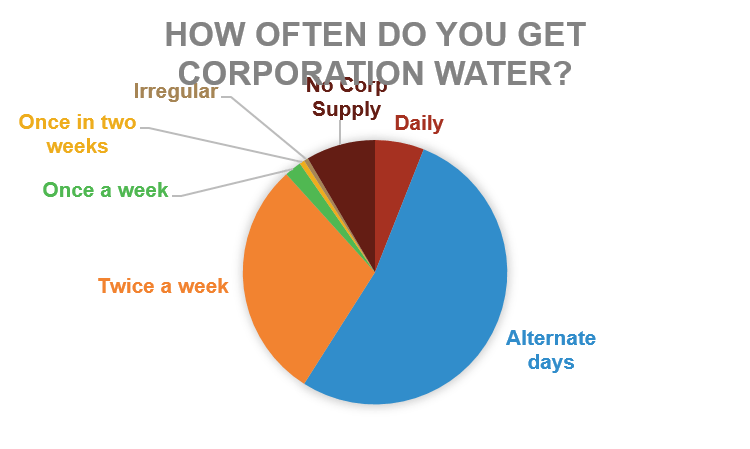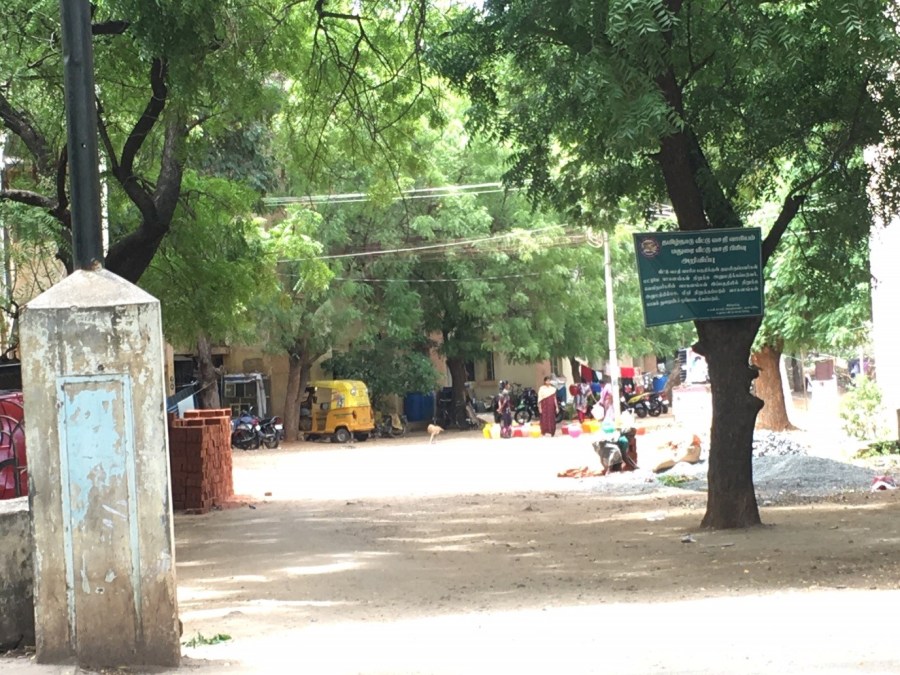A version of this article appeared on Firstpost on May 08, 2019.
Many urbans Indians have far too little water – just over two buckets a day to drink, bathe, cook and wash. Many rural Indians could go in for several more croppings (and different crops) if they had the water to grow those crops. That’s why it’s so perplexing that water, and specifically water management, is not a raging political issue.
Why is this? We can bemoan it, but finding a solution, requires us to both acknowledge and attempt to understand the present. To do so, let us unpack the thorny relationship between Democracy and Water.
Balancing Competing Demands
At the heart of the politician-water nexus is the need to balance different interests. Take the case of Maharashtra, where it’s reported that voters say: “Whoever fixes the drought will get my vote”. Can drought be fixed? Perhaps – Israel has done it. But a quick-fix? Far more unlikely.
Agriculture is the single largest user of water in India – and as per the All India Survey of Governance Issues and Voting Behaviour 2018 study by the Association of Democratic Reforms, many of Maharashtra’s agricultural constituencies place “Availability of Water for Agriculture” as a Top-3 issue. Now note that many rural Maharashtrian voters also care about electricity for agriculture almost as much (just about 1% less) as they care about water availability. Hmmm…Politicians, paying close attention, proceed to subsidise electricity. This represents something within their power (and their term) to do.
In 2018-19, agricultural consumers were subsidised by over Rs. 11,000 crores by other classes of electricity consumers in Maharashtra. But even that subsidised tariff is not paid by all. As of June 2018, cumulative arrears of agricultural consumers exceeded Rs. 26,000 crores. Clearly, this is an expensive action. But is it ‘fixing the drought’. Not quite: only 17.8% of the cropped area is irrigated – i.e., the subsidised electricity is benefitting a small fraction of farmers, given that typically, only the wealthier farmers own the borewells.
Meanwhile, urban voters, notably in Mumbai-North, Pune and Nagpur, as per the ADR survey want their drinking water now, if you please. City will need to fight with farm for its share of water. The poor (yes, you read that right) politician must make the risky and tricky balance between competing needs of water. But the water-pie itself may shrink. Recent farmer protests have demanded Forest Rights, drought compensation, loan waivers and better prices for their products. If forests dwindle, the peninsular rivers they give birth to die with them. Politically, however, the sub-text from the protests is crystal clear: it is an exhortation for politicians to provide (and divide), not for the government to manage.
Narrative: Provide, don’t manage.
Long ago, every drop of water came because of a role performed – maintaining a bund, clearing a channel, desilting a tank, paying a share of a crop. It did not come for free. Balancing different demands was somewhat easier then. But our history has transformed water from a responsibility to a right – a dole – first from our colonial rulers to now our political leaders. This makes provision powerful political capital.
Which brings me to the water situation in my own city – Madurai. Last year, Sundaram Climate Institute discovered that residents in several localities get water only once every few days in a communal tap. Anecdotal reports suggest that the situation still prevails.

This is clearly unacceptable, and we would expect that residents would care that so much potable water is potentially lost to leaks. “Meter the water and arrests those leaks, I say”. Au contraire. Despite sporadic protests on water scarcity, ‘drinking water’ is not even a big enough in Madurai to figure in the Top 3 issues as per the ADR survey. Expanding the scope to Tamil Nadu, in the 39 constituencies surveyed by ADR, only 6 constituencies placed water in the Top-3 issues, and none of the urban centres placed Drinking water in the Top-3 issues.
Digging a little deeper into the study, we find that one of the lowest governance priorities of voters is encroachment of public lands. Urban water availability in dry regions with seasonal rainfall (AKA Tamil Nadu) rests firmly on well-functioning public tanks and lakes. However, these are choice encroachment targets – when linking channels are encroached upon, downstream tanks in a system of cascading tanks become dry – providing enticingly empty land in crowded city centres. When voters openly tell politicians that they don’t prioritize preventing encroachment, they are clearly signalling that water management is unlikely to be rewarded. Supporting this narrative are the results of the recent state elections: governments such as Telangana , who prioritised populist measures (free electricity) before elections over water management won.
Political parties understand this all too well and have framed their manifestos accordingly. Some feature a cash transfer to segments of the population, while others promise crop loan waivers and free electricity to farmers. None of these measures will serve to alleviate water scarcity in the state. Indeed, features like free electricity for farmers, coupled with a higher MSP for paddy and sugarcane will only make it worse.
Next time let us dive deeper into why voters prioritize provision over management.
